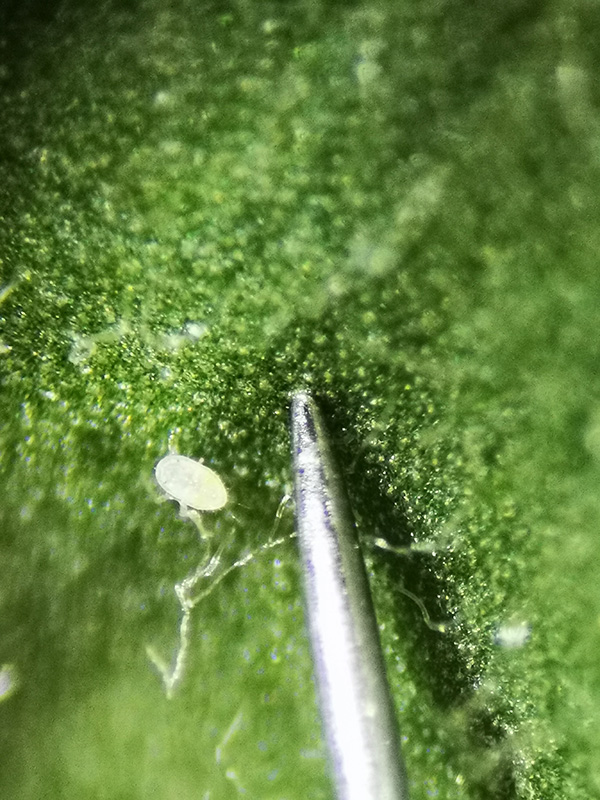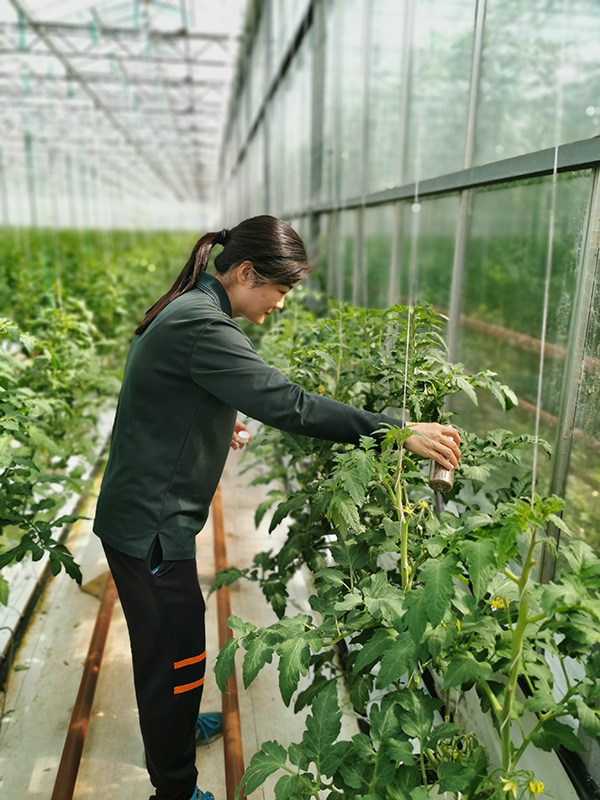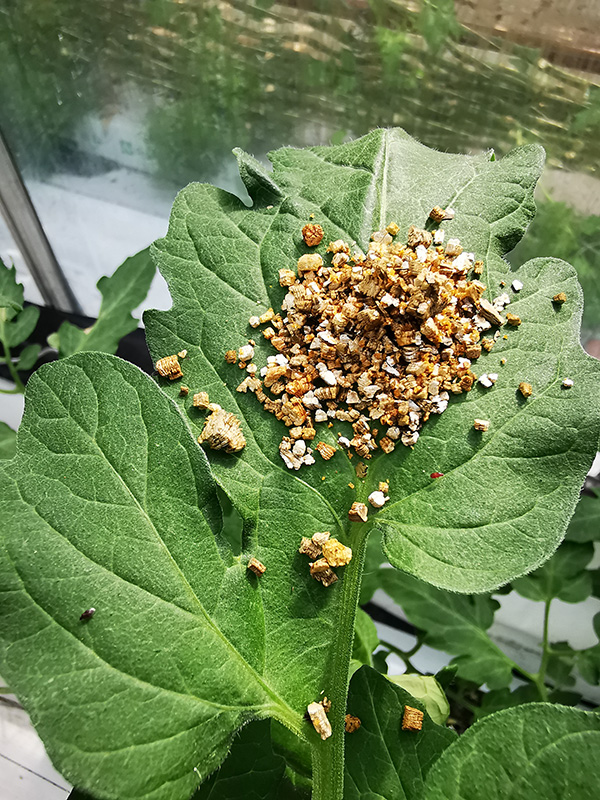The potential for native bugs to help control two major greenhouse insect pests is an exciting development in pest control for tomato growers.
A Tomatoes New Zealand project in conjunction with A Lighter Touch is aiming to change the face of crop management of greenhouse tomatoes, with a move to a more balanced approach. The ultimate goal is to reduce agrichemical applications on tomatoes and instead use a combination of predators, soft sprays and selective agrichemicals.
Previous research in the laboratory has identified some native arthropods, or bugs, as potential predators of Greenhouse whitefly and Tomato potato psyllid, the two major economic insect pests for greenhouse growers. Field trials are now underway across five different locations to test whether these native predators also feed on whitefly and psyllid in a greenhouse environment.

A whitefly larvae next to an acupuncture needle. Photo credit Chris Thompson, Bioforce.
One early observation has seen one of these native predators released into an established psyllid population in a glasshouse and rapidly decimate the population of juvenile pests found under the leaves. This demonstrates that, as was seen in the lab testing, this particular bug can potentially find and predate on juvenile psyllid stages. Whilst this project is still in its early stages, this observation is a big step in the right direction.
Future work would need to see these results repeated to prove the effectiveness of these native predators. Further research would also be required to determine how many of the beneficial bugs were required for optimal results, as well as the best time to introduce them.

Jackie Bong from NZ Hothouse releasing the predators on to tomato plants. Photo credit Chris Thompson, Bioforce.
If further trials prove these native arthropods are an effective predator to whitefly and psyllid, the project also includes plans for growers and bug suppliers to work together on how to establish an economically viable supply of the bugs for growers.
The project is in the second year of a four-year programme, which includes trials of other beneficial arthropods. A total of seven tomato growers in both the North and South Island will be involved.
Find out more about this project in the Our Projects section of our website.
If you are interested in knowing more about the A Lighter Touch programme, subscribe to our newsletter In Touch by clicking this link.

Vermiculite containing the predators on a tomato plant leaf. Photo credit Chris Thompson, Bioforce.